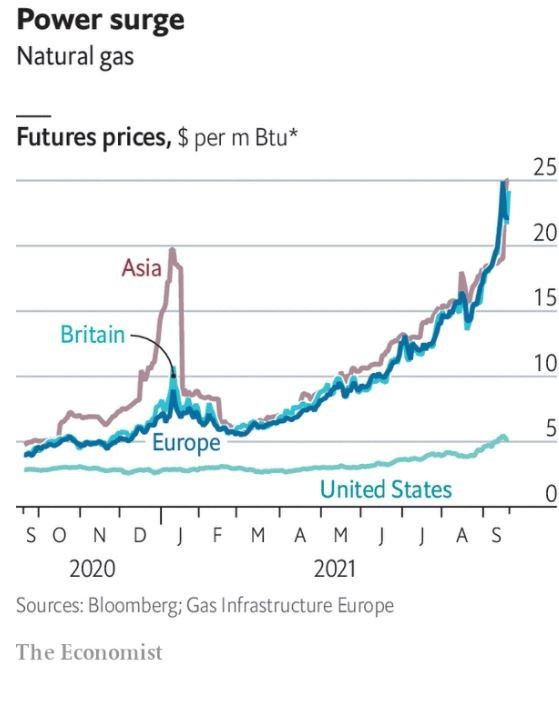FXOpen

One of the sharpest rallies in 2021 is taking place in the commodities market. Natural gas, seen below as XNGUSD, has doubled in price since late May, and the bullish run may continue into the winter season as it is about to start in the Northern Hemisphere.
Before discussing some of the reasons why natural gas has entered an uptrend, let’s look at the technical state of things. Below is the daily timeframe of the XNGUSD pair which tracks the price of natural gas in US dollars.

The bullish run started in 2020 as the market made a double bottom within the $1.50 area. By the end of 2020, the price action stalled, and consolidation began. A contracting triangle finally acted as a continuation pattern, and the bullish breakout that followed led to the sharp rally mentioned above.
Why Is Natural Gas Rallying?
Different countries charge different prices for natural gas, but now, the prices have one thing in common: they are rising all over the world. In Europe, for example, the natural gas price jumped to record levels, driven by factors such as Russian supply bottlenecks or lack of wind in the UK.

The trend is likely to continue because natural gas is used for electricity generation, plus winter is coming soon. Additionally, Russia announced recently that it wouldn’t increase gas supply to Europe, so the pressure on higher prices remains.
Let’s not forget that rising demand from Asian economies drives the price higher as well. As the post-COVID-19 economic recovery continues, the higher demand will result in more bottlenecks and shortages.
In the UK, the situation is dire, too. The country uses 40% natural gas to meet its energy demands. This week, the UK natural gas wholesale price settled at the highest-ever closing level. If we transform the price of natural gas expressed in mBtu (i.e., million British thermal units) into oil equivalent, we get $150 per barrel of oil.
All in all, while the rally in the natural gas price is nothing short of impressive, we may see more of the same in the months to come. As winter reaches the Northern Hemisphere, the pressure on natural gas prices remains elevated.
This article represents the opinion of the Companies operating under the FXOpen brand only. It is not to be construed as an offer, solicitation, or recommendation with respect to products and services provided by the Companies operating under the FXOpen brand, nor is it to be considered financial advice.
Stay ahead of the market!
Subscribe now to our mailing list and receive the latest market news and insights delivered directly to your inbox.








